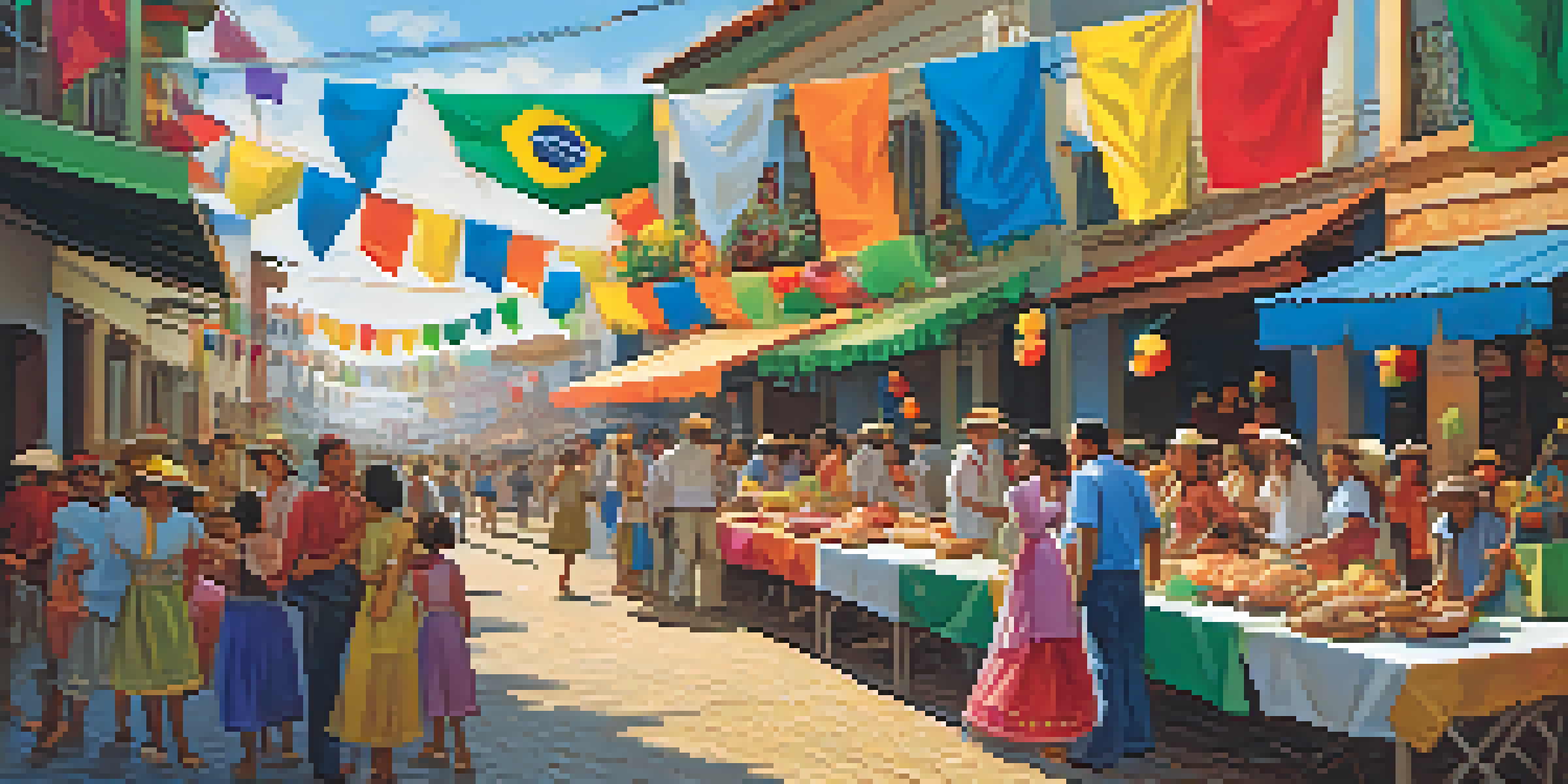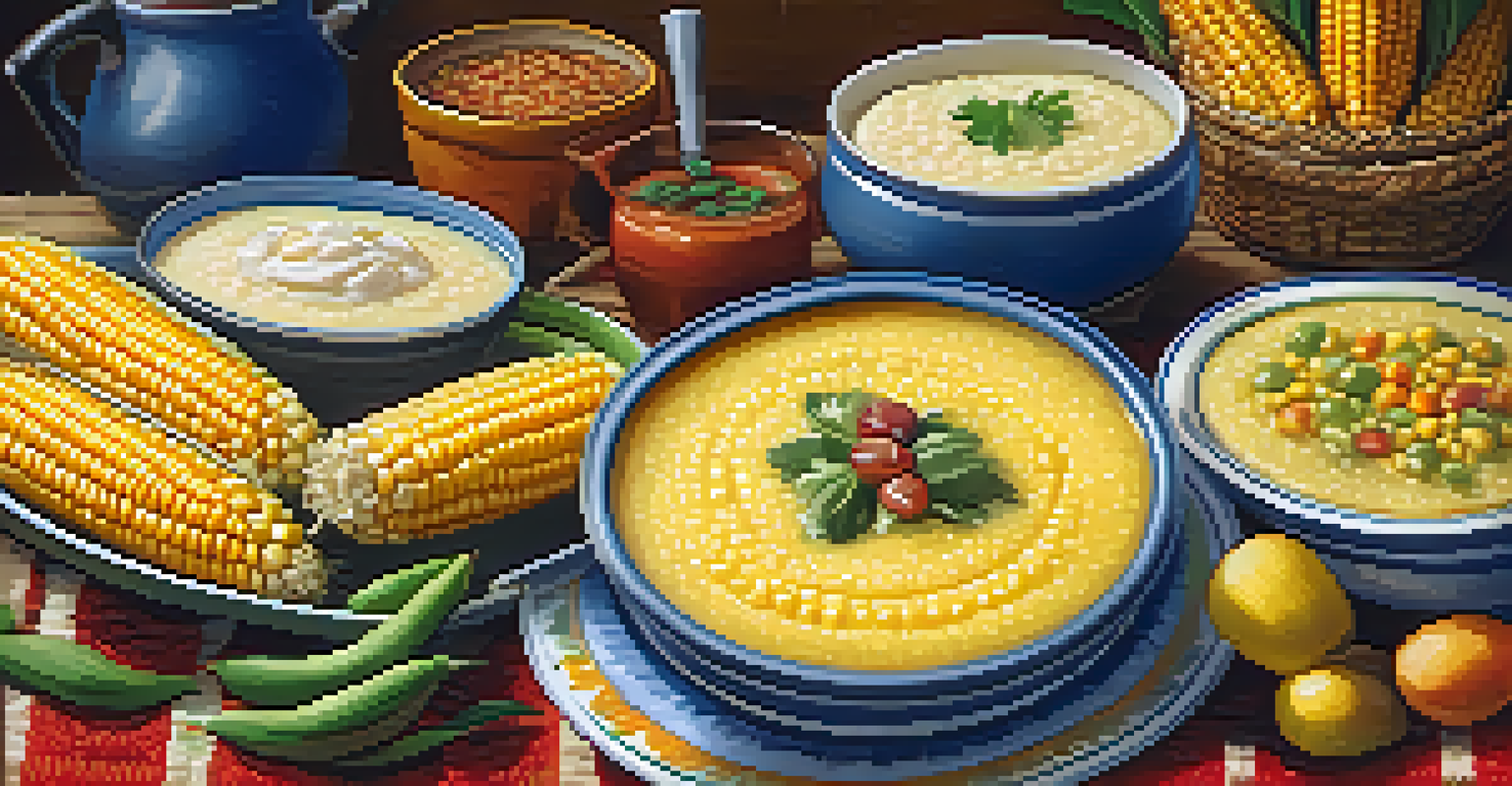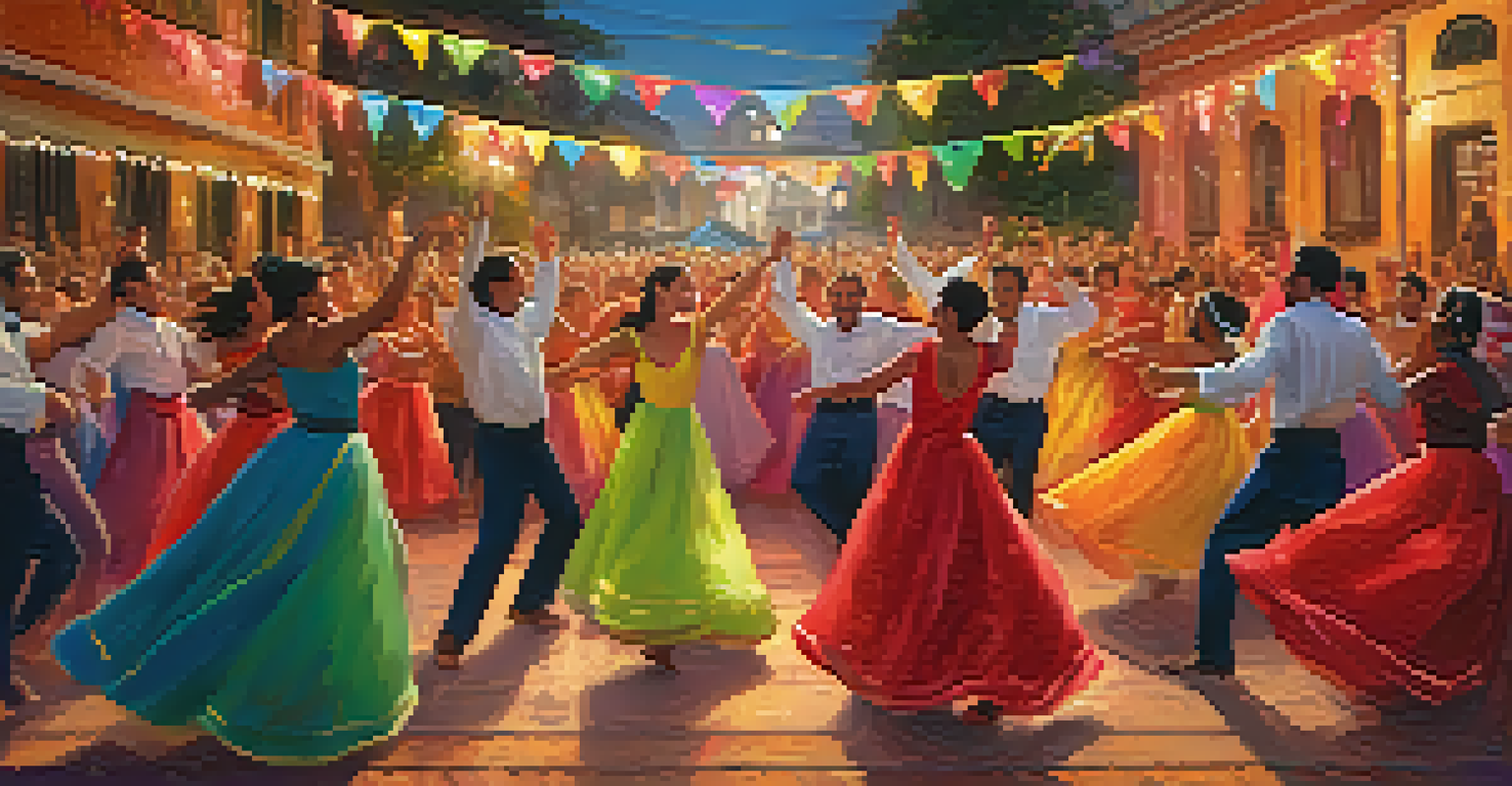Festa Junina: Celebrating Brazil's Rural Folklore and Customs

What is Festa Junina and its Historical Roots?
Festa Junina, celebrated in June, is a vibrant festival in Brazil that honors rural traditions and folklore. Its roots trace back to European festivals, particularly those celebrating the harvest season. Over time, it evolved to incorporate local customs, blending Portuguese, African, and Indigenous influences into a unique cultural event.
Tradition is not the worship of ashes, but the preservation of fire.
The festival initially celebrated St. John the Baptist, aligning with the June calendar. As it grew, it became a broader celebration of rural life, symbolizing the agricultural heritage of Brazil. This transformation highlights how cultural events can adapt and thrive, reflecting the people’s identity and history.
Today, Festa Junina is more than just a religious observance; it's a joyful opportunity for communities to come together. Families and friends gather to enjoy traditional foods, dances, and games, creating a sense of unity and belonging that is felt throughout the country.
Traditional Foods: A Feast for the Senses
One of the highlights of Festa Junina is undoubtedly the array of traditional foods that tantalize the taste buds. From sweet treats like pamonha (corn pudding) to savory delights like canjica (sweet corn porridge), the festival showcases Brazil's rich agricultural bounty. Each dish tells a story, often passed down through generations, connecting families to their roots.

Food stalls are a common sight during the celebrations, brimming with colorful dishes that reflect the festive spirit. People gather around to savor these culinary delights, often sharing recipes and stories behind each dish. This communal aspect enhances the festival experience, reinforcing bonds among friends and family.
Celebrating Cultural Heritage
Festa Junina is a vibrant festival that honors Brazil's agricultural roots and diverse cultural influences.
The preparation and enjoyment of these foods also serve as a reminder of the importance of local ingredients. Many dishes feature corn, a staple in Brazilian cuisine, symbolizing the harvest and the agricultural lifestyle. This focus on local produce not only supports farmers but also emphasizes sustainability and community resilience.
Festive Decorations: Transforming Spaces
Festivities wouldn't be complete without the vibrant decorations that transform streets and homes during Festa Junina. Colorful banners, known as 'bandeirinhas,' made from paper or fabric, flutter in the wind, creating a festive atmosphere. These decorations are not just eye-catching; they symbolize joy and celebration, inviting everyone to join in the fun.
Food is our common ground, a universal experience.
Traditional setups often include straw, representing rural life, and bonfires, which are a nod to the festival's origins. The warm glow of the fire serves as a gathering point, where stories are shared and laughter fills the air. This cozy setting fosters a sense of community, making it a cherished part of the celebration.
As night falls, the illuminated decorations create a magical ambiance, enhancing the spirit of togetherness. The combination of lights, colors, and sounds brings the festival to life, making it an unforgettable experience for all ages. It’s a reminder that celebrations are not just about the events, but the shared moments that create lasting memories.
Traditional Dances: Celebrating with Movement
Dancing is an integral part of Festa Junina, with traditional dances bringing energy and excitement to the festivities. The most popular dance is the 'Quadrilha,' a lively group dance that often mimics a wedding ceremony. Participants dress in colorful outfits, adding to the fun and creating a visually stunning display.
Each dance performance is a story in itself, filled with playful interactions and humor. The choreography often reflects rural life, showcasing the customs and traditions of Brazilian society. This connection to cultural heritage is essential, as it helps younger generations understand their roots while having a great time.
Delicious Traditional Foods
The festival features an array of traditional foods, such as pamonha and canjica, that connect families to their culinary heritage.
As couples twirl and move in sync, the atmosphere becomes electric. The rhythm of the music invites everyone to join in, regardless of age or dance experience. This inclusivity fosters a sense of belonging, reminding us that dance is a universal language that unites people from different walks of life.
Games and Activities: Fun for Everyone
Festa Junina is not just about food and dance; it also features a variety of games and activities that keep the fun going. Popular games include 'Pescaria,' a fishing game where participants try to catch prizes, and 'Arremesso de Argola,' a ring toss game. These activities engage attendees of all ages, creating a lively and interactive atmosphere.
Children particularly enjoy the games, as they provide a chance to win small prizes and share joyful experiences with friends. These moments of play foster connections among community members, making the festival a cherished event for families. It's heartwarming to see laughter and excitement fill the air, reflecting the essence of community spirit.
Moreover, these games often carry traditional significance, linking back to rural practices and fostering a sense of nostalgia. They remind participants of simpler times, rooted in community and shared experiences. In this way, Festa Junina serves not only as a celebration but also as a bridge between past and present.
Regional Variations: Unique Celebrations Across Brazil
While Festa Junina is celebrated nationwide, each region of Brazil adds its unique twist to the festivities. For instance, in the Northeast, you'll find larger-than-life bonfires and vibrant music styles like forró. On the other hand, Southern states might incorporate more traditional European influences into their celebrations, showcasing the country's diverse cultural landscape.
These regional variations enrich the festival, showcasing the vastness of Brazilian culture. Each area brings its own flavors, music, and dance styles, making every celebration distinct and memorable. This diversity reflects Brazil's rich history, where indigenous, African, and European influences intertwine seamlessly.
Inclusive Community Festivities
Festa Junina fosters a sense of community through its lively dances, games, and decorations, inviting everyone to participate and create lasting memories.
As people travel from one region to another, they experience different aspects of the festival, creating a sense of unity in diversity. This shared celebration fosters appreciation for the country's cultural heritage and the importance of preserving these traditions for future generations.
Conclusion: The Enduring Spirit of Festa Junina
Festa Junina is more than just a festival; it’s a heartfelt celebration of Brazil’s rural folklore and customs. It embodies the spirit of community, bringing people together through shared experiences, food, dance, and laughter. As families and friends gather, the festival reinforces bonds that transcend generations.
In a fast-paced world, such traditions remind us of the value of connection, heritage, and joy. The stories told, the dances performed, and the foods shared during this time create lasting memories that resonate long after the festivities have ended. It’s a beautiful reminder of the importance of celebrating our roots.

As we look to the future, it’s crucial to continue embracing and promoting these traditions. By doing so, we not only honor our past but also lay the foundation for future generations to cherish and celebrate their cultural heritage, ensuring that the spirit of Festa Junina lives on.